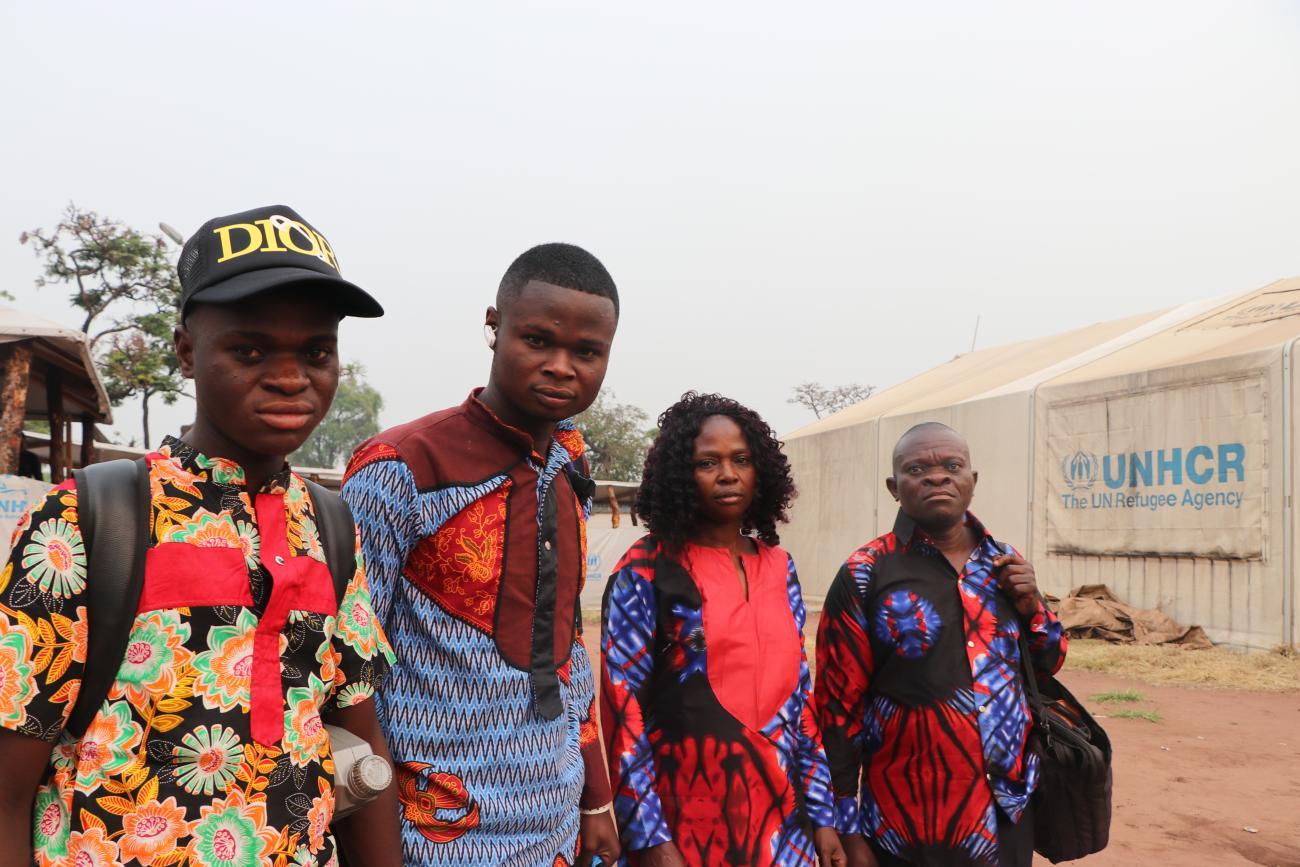Roger provided farming training to other refugees in the camp as part of a People-to-People Development Aid Programme. He himself benefited from programmes implemented by a UNHCR partner which provided him with farming tools and seeds. “I also had people coming at my place asking me for advice, especially about greenhouses and nurseries.”
Roger says that when he returns to the DRC, he will look to purchase a piece of land to continue working. “I will carry out a study to find out whether or not the land is good before purchasing it.” The other challenge that awaits him is the search for a house. “I will first be living in the family home, then I will figure out where to go,” he explains, adding: “I have a big family, and everyone is ready to welcome me.”
Back to school
When they arrive in the DRC, returning refugees get help to cover their basic needs: a cash allowance, food and personal hygiene items. UNHCR also supports family reintegration, for example by helping young people enroll in school.
Nella Bambemba may well need such support. “Back in Congo, I was studying in a nursing institute in Kikwit,” says the 25-year-old, who is about to return to the city of Kikwit. But Nella ended up dropping out of school halfway through when she fled to Angola with her parents in 2017. “I want to get my diploma and be able to provide for my children,” says Nella, a mother of four, including a baby.
Nella’s decision to go back to her home country was also prompted by a family tragedy: Her father died in the camp after being bitten by a snake. “Since my father died, as per our tradition, we must pass on the information to the family,” she explains.
Nella’s father also happened to be the breadwinner for Nella, her mother, and her siblings in Angola. Now that he is gone, the family is having a hard time. Therefore, once back in the DRC, Nella too will start looking for a job. She would like either to work as a saleswoman or find a job in an NGO to put into practice the training in community support and conflict management that she followed in the camp.
Coping with homesickness
On the day of departure, emotions are overwhelming. All voluntary returnees gather at the Departures Centre in the Lôvua camp and wait to be called to board the bus that will take them to the border. All around them, hundreds of other refugees come to say goodbye. Some nod, others burst into tears. Then, as the bus leaves the camp, groups children and teens start following the bus on the two sides of the road accompanying the travelers as far as they can.
Roger arrived at the Departures Centre wearing a tie and with a big smile on his face. It is an important moment for him, and he is thrilled to be going home.
“Congo is my beautiful country,” says Roger. “I feel good, and I am not afraid because this is an organized repatriation process.”
As for Nella, she is fully concentrated on the baby she is carrying in her arms. Since her child is only a few months old, she will travel in a separate car under medical supervision instead of joining the other refugees in a bus. This special care is reserved for all vulnerable people: nursing mothers, people who are sick and the elderly. In addition, people with chronic diseases are given the medication they need to continue taking their treatment for three months.

